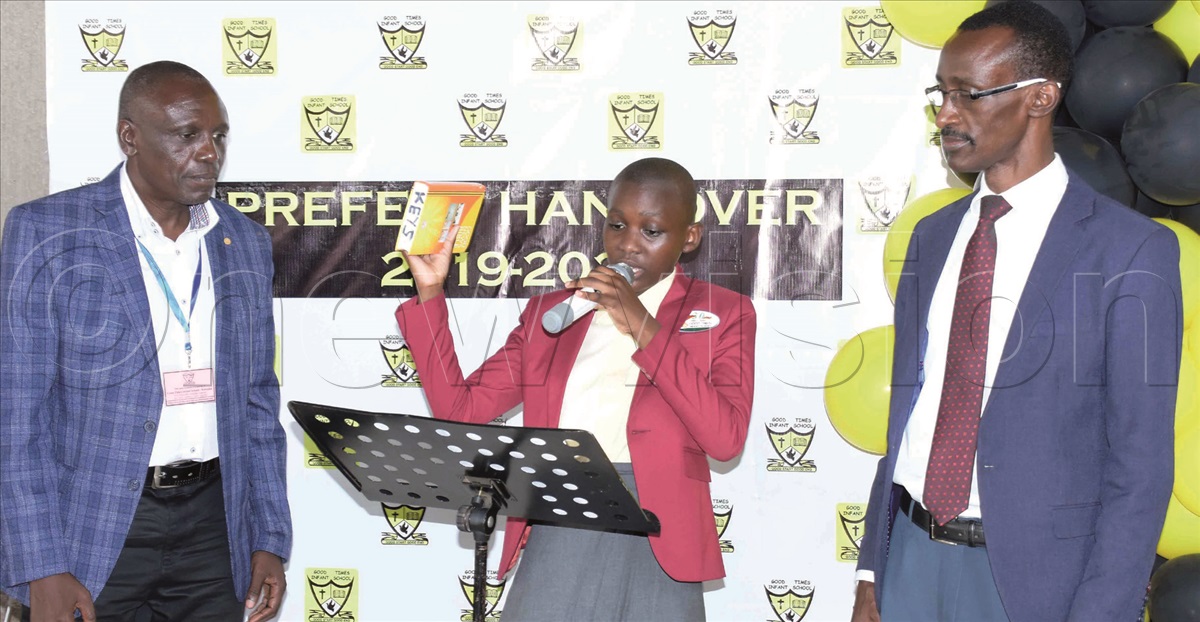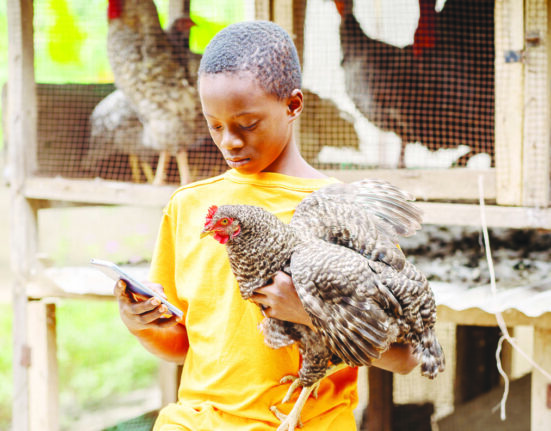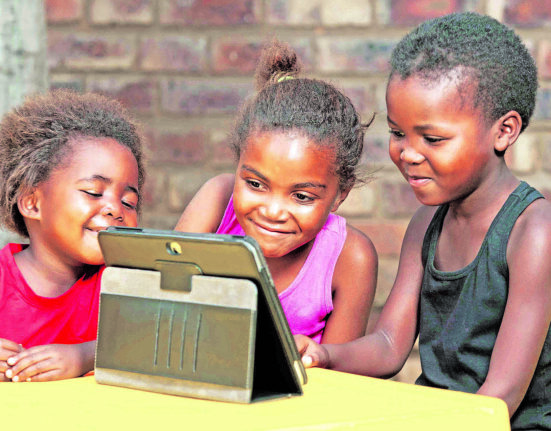(This article was first published in the New Vision on June 15, 2022)
From late last term, schools have been holding elections to choose their leaders. In the past, school elections were a simple affair, but today they have been commercialised. There is display of extravagance and a show of money in form of bribes and expensive banners and posters. Candidates from humble homes are knocked out, despite their leadership capabilities. Ritah Mukasa explores the implications of school elections and what needs to be done for them to serve their purpose
In March, residents of Kalerwe, Kawempe division in Kampala, were treated to free entertainment from four renowned musicians who were hired by pupils of Yudesi Primary School during their elections. Community members gathered in hundreds to enjoy the music.
One of the candidates rode on a camel with his mother, while another arrived in a luxury car, a hummer, like a tycoon.
Elsewhere, parents spend millions printing posters for their children. Peter Okware, the director of Teachers in Need (TIN) organisation, recalls once finding a teacher from a top school in Kampala printing posters worth sh1.6m for four candidates at Nasser Road in Kampala.
When Okware inquired from the teacher about what happens to candidates who cannot afford the posters, he said they are out-competed.
For Sarah Tendo, a parent at Seeta Junior School in Mukono, her son contested for the post of head boy and she printed posters worth sh100,000.
“I thought that was all, only to discover that other parents had violated the rules and were giving candidates sweets to bribe voters. The bribes were given out in the school vans while children were coming to school. Parents were warned, but they remained adamant,” she says.
Tendo complained about the malpractice to the school’s electoral commission in vain.
Voter bribery is not the only way parents are interfering with school elections. Some parents go as far as campaigning for their children.
“My son wanted to be a leader, but he was shy. I would campaign with him every morning in all classes before teachers came in. Thereafter, I would go to office,” Emma Kisakye, a parent at Greenhill Academy in Kampala, says.
Her son won the election and his confidence and self-esteem were boosted, she adds. In the same breath, she is against investing money in elections and implores parents to desist from the practice.
“My son succeeded without bribing voters. Commercialising elections is not good for our children,” Kisakye says.
Another parent, Rebecca Abio, remembers the day her daughter asked for some money, which was unlike her. When probed, Abio’s daughter revealed she wanted to buy sweets to give the voters.
“I explained to her what leadership means and why she should not buy her way into voters’ hearts. She competed and won,” she says.
All this points to commercialisation of school elections, which has consequences, both now and in the future.

Impact Of Commercialising Polls
In secondary schools and universities, some candidates get into debt. They end up injecting their school fees into elections.
But also the extravagant campaigns have consequences because children of the rich get room to show off, which can lead to pride and arrogance.
Some children are traumatised by the much money splashed by their friends at school, says Hildah Muwanguzi, an educationist. This affects their concentration and performance. It can also push them to steal to match their colleagues.
Commercialising campaigns can breed tribalism, where voters decide to support their tribe mates because they have money, Derrick Odongo, a teacher and counsellor, explains.
The trend of school elections is nurturing a generation of voters who will not mind who comes to power as long as they are given money, Odongo warns.
Another teacher, Joseph Tibanyururwa, is also concerned that those individuals will also be greedy and that they will likely exploit the underprivileged through patronage.
“They will relate leadership to wealth. They will also be too weak-hearted and will only seek a ‘soft life,” he adds.
The pomp has blocked capable pupils from discovering their leadership potential, Abio explains.
“Able leaders are eliminated simply because they can’t print posters or bribe voters with sweets and money,” Rogers Ochan, a teacher at Buziga Islamic Institution of Theological Studies, says.
Commercialisation of elections has diluted the notion of democracy, Dickson Tumuramye, a parenting counsellor, explains.
“Children grow up thinking that politics is a reserve of the rich, which creates discrimination and segregation. It also locks out children from less privileged homes who have leadership potential and, in some cases, undeserving leaders are elected. This injustice should stop immediately. We are promoting corruption and bribery among our children,” he says.
Leadership in schools should aim at shaping character, morals and values, Pauline Nakanaabi, a primary school teacher in Mukono district, says.
Unfortunately, currently, some schools have gone astray. For example, they treat those who fail in the election with contempt and heap praises on the winners.
Tumuramye is quick to add that the ill treatment from the teachers pushes candidates to do whatever it takes to win an election. Thus, candidates hire musicians, beg and bribe for support and make promises they have no intention or capacity to fulfil.
Way Forward
This begs the question as to what should be done to restore school elections to their true purpose. Experts suggest a multi-pronged approach that includes policymakers, parents, teachers, learners and the community at large.
Some teachers are ignorant about civic education and lack professional exposure related to school democracy, Brasio Musinguzi, a teacher and master’s degree student at Nkumba University, says. This has been worsened by lack of policy guidelines from the education ministry to regulate elections in schools.
“We should petition the ministry to enact a policy to regulate school electoral democracy or lodge a civil case in the High Court for legal redress,” Musinguzi says.
Parents need to watch their actions because children understand that some of their parents (politicians) buy votes, Tibanyururwa warns. This partly explains the bribery in schools.
“Practise good politics. Avoid misusing funds and using elections to blackmail others because your children will do that,” Tumuramye says.
The current trend in schools stems from the general elections (presidential, parliamentary and local council), Tumuramye says. As a result, candidates find it hard to compete without posters, which disadvantages those from poor families.
Tibanyururwa suggests realignment so that education does not turn into a wide gate for corrupting the next generation.
“Put money, posters and bribes out of school campaigns. We should be intentional in training and moulding quality leaders for now and the future,” Tibanyururwa says.

Concurring with Tibanyururwa, Odongo is against posters, reasoning that primary and secondary schools are usually small compared to public universities. This means a candidate can reach every voter with ease. This gives contestants a chance to participate equally, regardless of whether they come from a rich or humble family.
Campaigns and voting should be limited to only a day because the leaders are known by the learners, suggests Pauline Nakanaabi, a primary school teacher in Mukono district.
Schools should also stick to the rules. Tumuramye says in some institutions such as Uganda Christian University where he serves, political parties and hooliganism during campaigns are not allowed. Whoever goes against the rules is disqualified.
“If a university can implement that, how about a primary school? Schools should foster strict rules and better decision-making processes,” he affirms.
Return to the system where teachers identify, screen and appoint leaders, recommends Okware.
“Why should parents get involved in elections? Schools should stop it before things get out of hand,” he says. In this regard, one of the directors at Kampala Junior Academy says they never held elections due to the COVID-19 scare. Staff nominated names and chose the prefects.
However, Fred Baluku, another teacher, opposes the idea, arguing that if teachers impose leaders on the learners, democracy will be suffocated.
“The learners should be allowed to vote, but without allowing bribes from candidates,” he suggests.
Back in the day, candidates would campaign during assembly and teachers chose those who were capable, explains one of the directors of Hope Lives Primary School in Alebtong district who preferred anonymity. He adds that civic and political education helped a lot to sensitise learners about good leadership, but these were phased out.
“The rich but incapable children will continue dominating school leadership with the support of teachers and parents,” he says.
School administrators need to discourage parents from commercialising campaigns, but rather train children in public speaking, says Odongo.
Education Ministry
Efforts to get a comment from the education ministry proved futile. Calls and messages to the known contacts of the public relations offi cer were not answered for days.
How Other EAC Countries Choose
Leaders
In her article, Schools urged to instil leadership and governance skills in students, Jane Njeri Thuo reports that Kenyan schools now give learners a feel of democracy after they allowed them to vote their own leaders. The arrangement also prepares them for future responsibilities.
“Schools across the country, both secondary and primary, have adopted this approach allowing students to exercise their democratic rights at a young age,” she says.
Candidates confidently campaign for a chance to be part of the student council, which comprises positions ranging from head boy and head girl, to entertainment and games captains and class prefects.
However, the article does not show if the candidates bribe voters.
In Tanzania, in most cases, teachers choose leaders.
Yusuph Kambuga and Abich Omollo from the department of Educational Management and Policy Studies, University of Dodoma, in their article; Understanding Students’ Leadership Role and Challenges in Secondary Schools in Tanzania, show that teachers sit in the staffroom and appoint leaders. Sometimes students are given the chance to submit names of those they want and teachers screen those names and reject those they believe do not have the right qualities.
Why Student Leadership Is Important
Experts Speak Out
According to Peter Okware, the director of Teachers in Need organisation, school leadership helps to improve the quality of education since prefects participate in governing their school. The prefect body serves as the official voice of the learners and encourages children to express their concerns and ideas.
They also develop the virtues of respect, responsibility, transparency and accountability. It is also important for students to learn the art of building relationships within teams, defining identities and achieving tasks effectively, all the while learning to identify and display effective communication and interpersonal skills.
Through elective leadership, learners gain experience early in life, Dickson Tumuramye, a parenting counsellor, explains.
Help Unsuccessful Candidates
Being unsuccessful in an election takes a heavy toll on the candidates. Some get hurt and if they are not counselled, they slip into depression, hate friends and teachers, according to experts. All that can affect their performance and in the end, they change school to avoid embarrassment.
“Assure them that even when they are not successful in the elections, it is not the end of the world. There will be other chances,” Dickson Tumuramye, a parenting counsellor says.
Children should also appreciate that God has good plans for their lives and should “let His will to be done”.
“If God wants this child to be a leader, it will happen at another level. Encourage them to keep the vision and try again in high school or university, or after their studies,” Tumuramye counsels.









Leave feedback about this